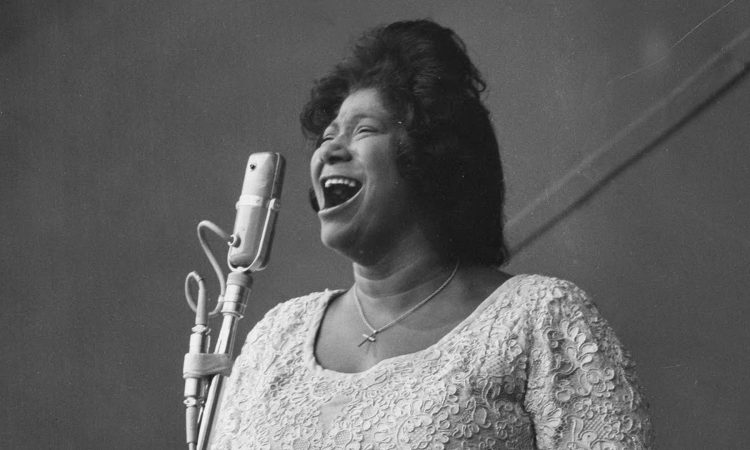
Mahalia Jackson, often hailed as the “Queen of Gospel,” remains an enduring icon in the world of gospel music. Her powerful voice and deep spiritual conviction transcended the boundaries of the genre, touching the hearts of millions around the world. Her life story is not only a testament to her immense talent but also to the unwavering faith that propelled her to greatness. As we celebrate her legacy, we are reminded that the Good Lord continues to work through each of us, just as He did through Mahalia Jackson.
![100+] Mahalia Jackson Pictures | Wallpapers.com](https://wallpapers.com/images/featured/mahalia-jackson-pictures-bczo7he2vd0wabcb.jpg)
Early Life and Beginnings
Born on October 26, 1911, in New Orleans, Louisiana, Mahalia Jackson’s early years were marked by hardship. Raised in a poor family, Jackson found solace and inspiration in the music of the church. Her childhood was steeped in the rich traditions of Southern gospel music, and by the age of four, she was already singing in the Mount Moriah Baptist Church choir.
Despite the challenges she faced, including the loss of her mother at a young age, Jackson’s faith never wavered. She moved to Chicago in her late teens, seeking better opportunities and carrying with her the deep musical influences of her hometown.

Rise to Fame
Jackson’s unique voice and emotive singing style quickly garnered attention. Her big break came with the recording of “Move On Up a Little Higher” in 1947. The song was an instant success, selling millions of copies and propelling Jackson into the national spotlight. This recording was significant not only for its commercial success but also for its profound spiritual impact, resonating deeply with listeners across racial and cultural lines.
Throughout the 1950s and 1960s, Jackson’s fame continued to grow. She performed at prestigious venues such as Carnegie Hall and was a regular on television and radio shows. Her music was characterized by its powerful delivery and deep emotional resonance, often leaving audiences in tears. Songs like “Take My Hand, Precious Lord” and “He’s Got the Whole World in His Hands” became anthems of hope and faith.

Contribution to the Civil Rights Movement
Beyond her musical achievements, Mahalia Jackson played a pivotal role in the Civil Rights Movement. Her friendship with Dr. Martin Luther King Jr. and her unwavering support for the movement’s goals made her an essential figure in the struggle for equality. Jackson’s performance of “I Been ‘Buked and I Been Scorned” at the 1963 March on Washington is remembered as one of the most moving moments of the event. It was Jackson who urged Dr. King to “tell them about the dream,” prompting his iconic “I Have a Dream” speech.
Legacy and Inspiration
Mahalia Jackson’s influence extends far beyond her lifetime. She has inspired generations of gospel and secular musicians alike, from Aretha Franklin to Mavis Staples. Her music continues to be a source of comfort and strength for those facing trials and tribulations.
Her story is a powerful reminder that with faith and perseverance, we can overcome even the greatest obstacles. Jackson’s life exemplifies the scripture found in Philippians 4:13: “For all things I have the strength through the one who gives me power.” Her journey from the poverty-stricken streets of New Orleans to the heights of international acclaim is a testament to the transformative power of faith.

Conclusion
Mahalia Jackson’s legacy is a beacon of hope and inspiration. Her contributions to gospel music and her role in the Civil Rights Movement have left an indelible mark on history. As we reflect on her life and achievements, we are reminded that the Good Lord is not through with us yet. Just as He used Mahalia Jackson to touch the hearts and souls of millions, He continues to work through each of us, guiding us to fulfill our unique purpose.
In the words of one of her most beloved songs, “How I Got Over,” we are encouraged to look back with gratitude and move forward with faith, knowing that with God’s help, we too can overcome and achieve great things.




